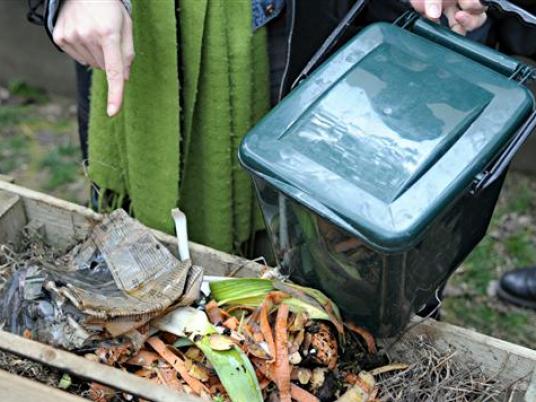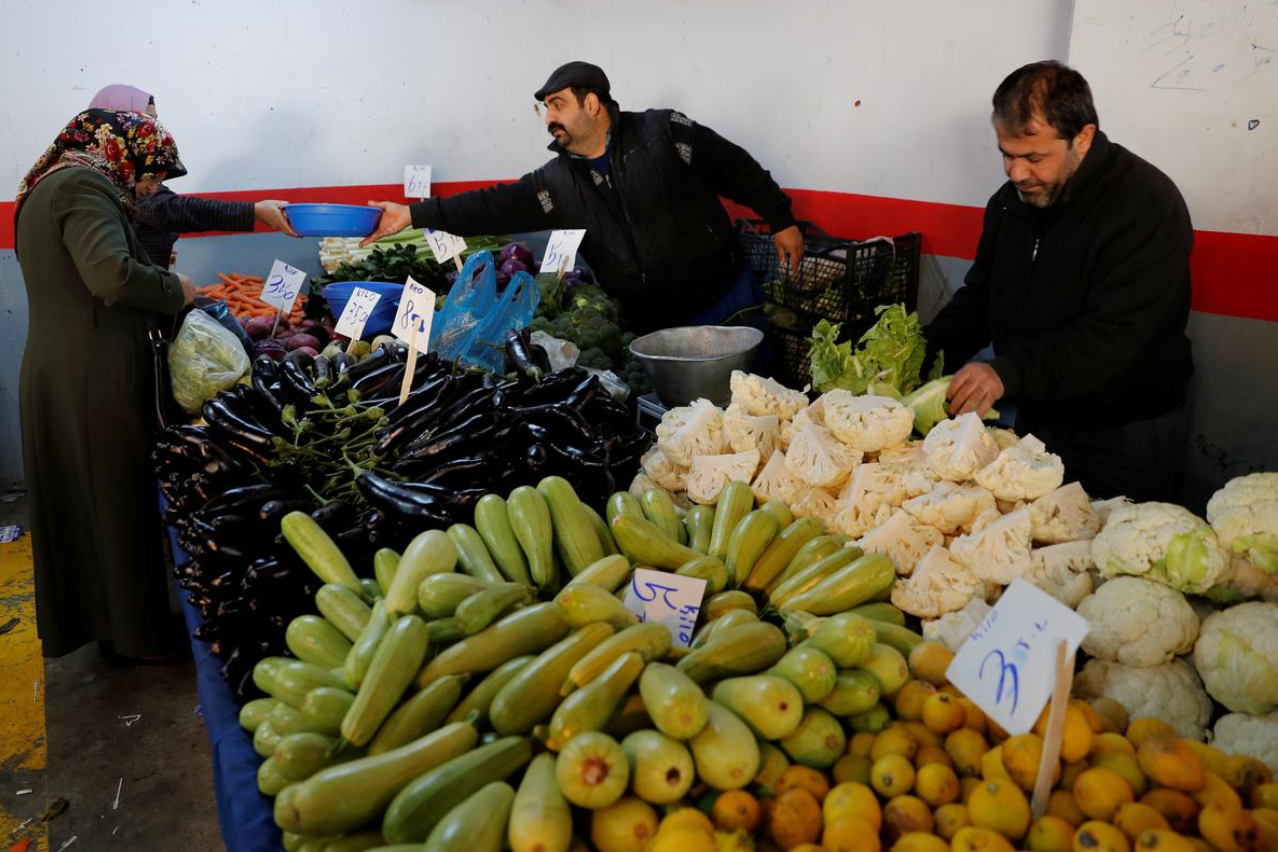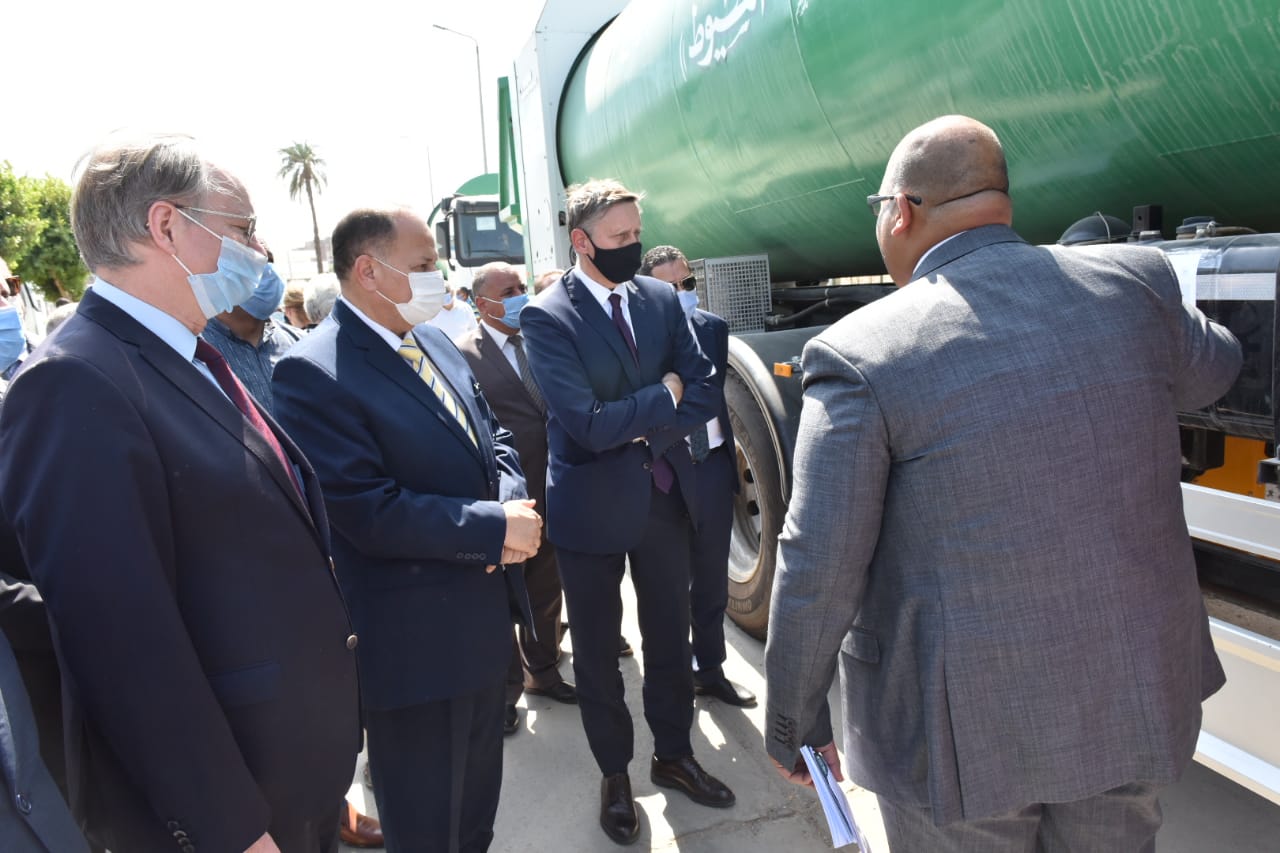
Would you be able to produce absolutely no garbage or waste for an entire week? Amid the heaps of garbage piled along Cairo’s streets, one small group of dedicated environmentalists recently attempted to do just that.
Ulrike von Reucker, a German resident of Cairo, initiated a project called “A Week With (Almost) Zero Waste” to encourage people to think about their consumption, and ultimately change their behavior.
But the participants, particularly parents, were so inspired after the week elapsed that they decided to extend the project to span the entire summer, she said.
Von Reucker has since renamed the project “A Summer With (Almost) Zero Waste.”
She says the original inspiration for the waste reduction initiative came from a German children’s TV channel, which sponsored a “Green Week” that occurred during world environmental week.
Von Reucker adds that one of the activities of Green Week focused on examining where garbage goes. It also considered the impact that drastically reducing waste for one week could have.
So she decided to try it in Cairo from 3-10 June, which corresponded to the German version of Green Week. Von Reucker launched a public Facebook page to announce the project.
She says the overarching theme behind the initiative is to encourage people to produce less garbage, and to make sure that whatever waste is produced is disposed of properly. In this regard, she decided to focus on composting rather than recycling.
“What brought us to the point of saying it’s about reducing your garbage was the realization that recycling can only do so much. If we want to solve the problem of reducing the garbage lying around, we must consume less,” von Reucker says.
Developed countries actually consume many more resources, and thus produce much more waste, than developing countries. According to Jared Diamond, an American geographer, “The average rates at which people consume resources like oil and metals and produce wastes like plastics and greenhouse gases are about 32 times higher in North America, Western Europe, Japan and Australia than they are in the developing world,” he wrote in the New York Times in 2008.
Yet despite the global inequality in consumption patterns, the garbage in Cairo keeps piling up. Von Reucker says the severity of the situation is prompting a small group of people, mostly women, to join the project and figure out what they can do to address the garbage problem.
“The biggest issue in Cairo is organic waste. No one really wants it at the moment,” von Reucker says.
The Zabaleen — trash collectors — used to collect Cairo’s organic waste to feed their 300,000 pigs. However, since the Egyptian government slaughtered Egypt’s pigs during the swine flu outbreak of April 2009, the Zabaleen are no longer interested in collecting organic waste.
Heidi Fink, one of the project participants, has taken it upon herself to compost in an effort to begin to address this problem.
All of her food waste is composted, she says.
“I use the raw organic waste to produce compost on the rooftop. And I don’t use seeds,” she adds.
According to Fink, she only adds soil and water, and the plants just grow from the compost itself.
On the Facebook page for the project, many of the 60-plus participants have offered practical ideas on how to reduce food waste. This includes exchanging tips on how to keep food fresh longer, and how to make smoothies out of overripe fruit to avoid throwing food away.
Both von Reucker and Fink say that engaging children and educating them about environmental issues are top priorities.
Fink says her children are very interested in what she does. “They learn from me, they see what I do, they put recycling materials where they belong. And they never throw garbage onto the street. They are very sad when they see somebody doing it,” Fink adds.
Both Fink and von Reucker say they see a need to connect people who are concerned about the issue of garbage and waste reduction in Cairo, as well as the need to motivate others.
However, Fink says she encounters a lot of cynicism from those who say it’s impossible to change people’s attitudes and behavior.
Fink says her Egyptian husband initially laughed at her when she told him she wanted to work on the issue of waste management in Egypt.
“But he stopped laughing,” Fink says. “He takes it seriously now.”




